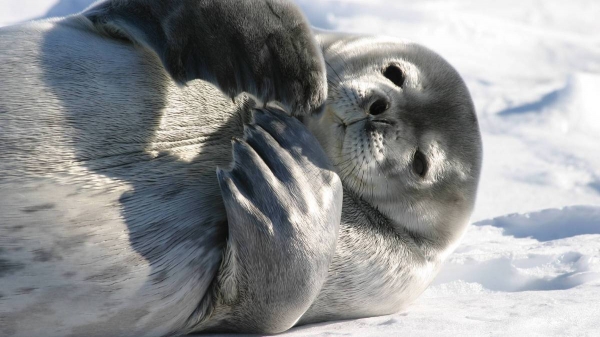For several years, a team of researchers from the Alfred Wegener Institute used underwater microphones to listen for seals at the edge of the Antarctic. Their initial findings, just released in the journal Frontiers in Ecology and the Environment, indicate that sea-ice retreat has had significant effects on the animals’ behaviour: when the ice disappears, areas normally full of vocalisations become very quiet.
When the sea ice vanishes, Antarctic seals become silent. This is the main conclusion of a new article just published by Dr Ilse van Opzeeland’s research group. The biologist is currently working at the Alfred Wegener Institute, Helmholtz Centre for Polar and Marine Research (AWI) and the Helmholtz Institute for Functional Marine Biodiversity at the University of Oldenburg (HIFMB). For the study, she and her team analysed audio recordings from an underwater microphone that automatically recorded the vocalisations of marine mammals like seals and whales. “What’s unique about our study is that, for the first time, we were able to assess recordings covering eight years and all four Antarctic seal species,” says lead author Dr Irene Roca, biologist at HIFMB and AWI at that time and currently working at the Université du Québec en Outaouais (Canada). “This allowed us to observe the seals’ behaviour over an extended timeframe and to compare individual years.”
Read more at: Alfred Wegener Institute
A Weddell Seal in Antartica. (Photo Credit: Joachim Plötz)
https://www.awi.de/en/about-us/service/press/single-view/weniger-eis-weniger-rufende-robben.html


